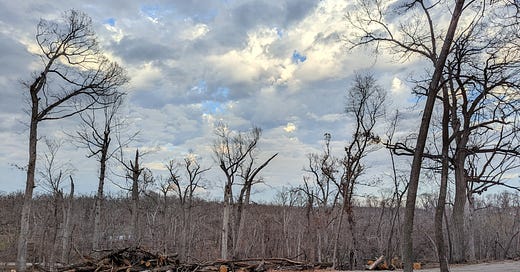On August 12, 2020, a derecho, with wind speeds of up to 140 mph tore through my town and left it mangled and broken in so many ways. Two years later, the town is still dealing with the aftermath. As the earth continues to warm, severe climate events are becoming the norm. And how do we adapt and change, in the furious face of nature? This newsletter is…
© 2025 Lyz Lenz
Substack is the home for great culture



